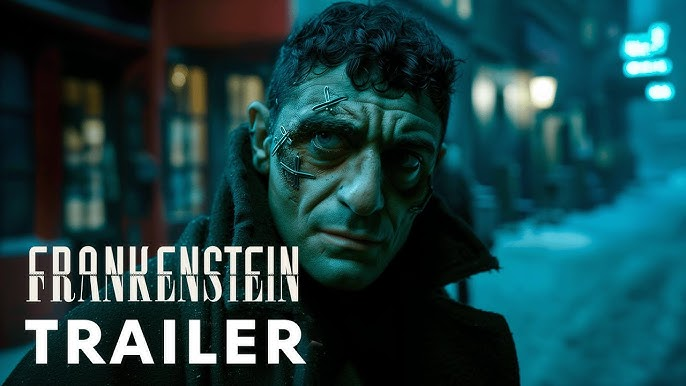A Gothic Requiem: Guillermo del Toro’s Reimagining of Frankenstein
Guillermo del Toro’s 2025 adaptation of Mary Shelley’s Frankenstein isn’t merely a retelling; it’s a resurrection. This isn’t your typical monster movie; it’s a deeply moving exploration of ambition, loss, and the devastating consequences of playing God. Del Toro’s signature blend of visual artistry and emotional depth creates a cinematic experience as haunting as it is philosophically resonant.
A World of Ice and Moral Decay
The film plunges viewers into a desolate, snow-covered landscape, establishing a chilling atmosphere that reflects the moral decay at the heart of the story. Victor Frankenstein isn’t a stereotypical madman; instead, he’s a brilliant mind consumed by an intoxicating ambition for mastery. Del Toro portrays him not as purely evil, but as profoundly flawed, a man so blinded by his pursuit of legacy that he fails to see the inevitable destruction it will bring. The setting, a timeless expanse of frigid beauty and stark desolation, perfectly mirrors the internal struggles of its central characters.
The Creature’s Heartbreaking Humanity

Unlike many previous adaptations, Del Toro’s Frankenstein humanizes the Creature. From its very first moments, awakening confused and trembling in the unforgiving cold, the audience is compelled to empathize, rather than fear. The Creature is not simply a monster; it’s a being born from Victor’s failures, a tragic figure deserving of compassion. This empathetic portrayal is a powerful departure from traditional portrayals, making the Creature’s suffering all the more poignant.
A Masterclass in Visual Storytelling
Del Toro’s mastery of the grotesque is breathtaking. Sickly green glows illuminate the laboratories, and the meticulously crafted details of the Creature’s stitched-together flesh are both horrifying and mesmerizing. However, the true horror lies not in the explicit gore, but in the Creature’s expressive eyes—intelligent, yearning, and profoundly alone. The film’s cinematography skillfully uses lingering shots of eyes, mirrors, and empty rooms to transform silence into a palpable sense of suffering.

Beauty and Abomination Intertwined
Del Toro masterfully blends beauty and horror. The gothic world he creates feels both real and fantastical, brutal and poetic. The film maintains a slow-burning emotional dread, a constant sense that everything Victor touches is destined to crumble beneath the weight of his ambition. Suspenseful moments are infused with a pervasive sense of foreboding, creating an atmosphere that lingers long after the credits roll.

Exceptional Performances and Profound Themes
The performances are nothing short of superb. Andrew Garfield (reportedly) embodies Victor’s arrogance and despair with equal measure, portraying his descent from visionary to outcast with compelling tragedy. However, the emotional core of the film rests on Oscar Isaac’s heartbreaking portrayal of the Creature. His soft, yearning voice gives even the simplest pleas a seismic impact, leaving an indelible mark on the viewer.
A Deep Dive into Morality and Isolation

This Frankenstein transcends the typical horror narrative by delving into profound philosophical questions. It doesn’t just ask “What have I done?” but rather, “Why did I do it?” Del Toro explores the morality of creation, the ethics of suffering, and the unbearable isolation of being rejected by one’s own maker. He transforms Shelley’s timeless questions into a powerful cinematic experience, seamlessly blending profound themes with captivating drama.
A Devastating and Unforgettable Conclusion
The film’s pacing, deliberately slow at times, allows the grief and despair to breathe. Tragedy isn’t sudden; it’s inevitable, as if the narrative is fated to collapse under the weight of its own ambition. The ending, quiet, snow-laden, and utterly devastating, is a testament to Del Toro’s directorial prowess. There’s no triumphant catharsis, only the bitter consequences of Victor’s actions, a haunting silence, and the lingering echo of a creature’s desperate cry in a world that never welcomed him.
More Than a Monster Movie
Frankenstein (2025) transcends the genre. It’s a lament, a gothic requiem for lost innocence, for flawed creators, and for creatures unjustly condemned. Del Toro has crafted something truly exquisite, terrifying, and profoundly unforgettable. This November, Netflix isn’t just delivering a monster movie; it’s delivering a masterpiece.
